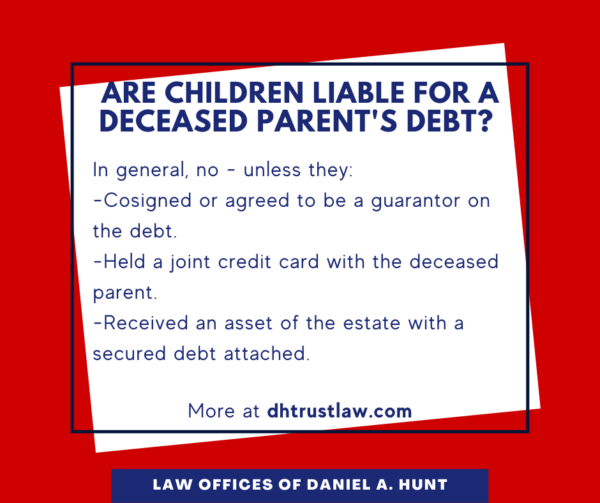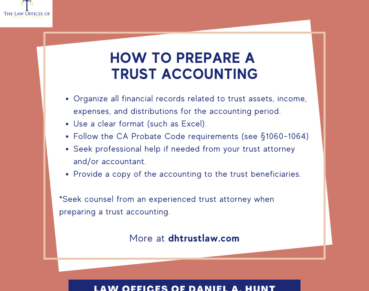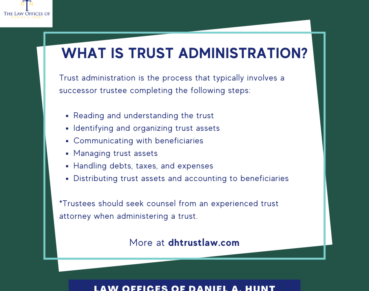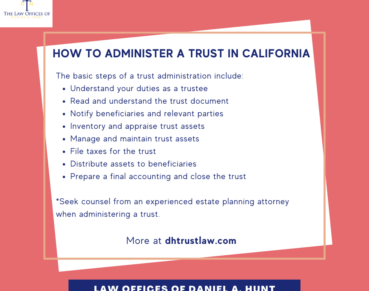Who is Responsible for a Deceased Parent’s Debt?

If your parent died with significant debt, you may wonder who is responsible for paying that debt. In general, children are not personally liable for a deceased parent’s debt. Instead, the trust or estate must pay off creditors as part of the trust or estate administration, with a few exceptions. Here’s an overview of who is responsible for paying off a deceased parent’s debt.
Are Children Personally Liable for Parent’s Debts?
When a parent dies, their children are not personally liable to creditors for their debt. A creditor cannot go after a child to collect on a parent’s debt if there is no contractual agreement between the child and their parents’ creditors.
However, a child may be personally liable if:
- They cosigned or agreed to be a guarantor on a parent’s debt.
- They held a joint credit card with the deceased parent. Note: An authorized user is not the same as a joint credit card holder.
- They receive an asset of the estate with a secured debt attached. The debt would then pass to them along with the asset.
If an asset of the estate is transferred to you, and the debts have not been resolved, then the creditor may seek to enforce their claims against whoever took the asset. But the creditor is subject to certain deadlines to make a claim which we’ll discuss later.
What if I Don’t Make Payments?
You may not be personally liable for your parents’ debts, but there may still be consequences if you fail to make timely payments on their secured assets. For example, most mortgage loans on homes are secured by a deed of trust. The deed of trust allows the mortgage lender to foreclose on the property if the loan payments are not being made. The same is true of a car loan secured by a vehicle.
If you as a child want to keep one of your parents’ secured assets, like a house or vehicle, then you must continue making the loan payments until you figure out how to assume or refinance the loan for that asset. If you don’t wish to keep the secured asset, then making payments will be unnecessary. Just be aware that these assets will be foreclosed on or repossessed.
How Does a Trustee Handle Debt?
If the decedent created a California revocable living trust, then their successor trustee is responsible for dealing with any debt after they pass. The trustee is not personally liable for the debt, but is responsible for notifying any known or potential creditors about the decedent’s death. Then they must approve, reject, or dispute each claim.
How Does a Personal Representative Handle Debt?
If the decedent died with only a will or without creating an estate plan, then the personal representative of their estate is responsible for dealing with any debt after they pass. The representative is not personally liable for the debt, but is responsible for notifying any known or potential creditors that the decedent has passed away.
If the personal representative has powers under the Independent Administration of Estates Act (IAEA), then they must approve or reject the claims. If they were not granted these powers, then the court is responsible for approving or rejecting creditor claims.
If your parents had significant debt, you should seek counsel from an experienced trust and estate lawyer for help negotiating with creditors and settling the estate. If you have any questions about who is responsible for a deceased parent’s debt, feel free to contact our law firm.
Law Offices of Daniel A. Hunt
The Law Offices of Daniel A. Hunt is a California law firm specializing in Estate Planning; Trust Administration & Litigation; Probate; and Conservatorships. We've helped over 10,000 clients find peace of mind. We serve clients throughout the greater Sacramento region and the state of California.




